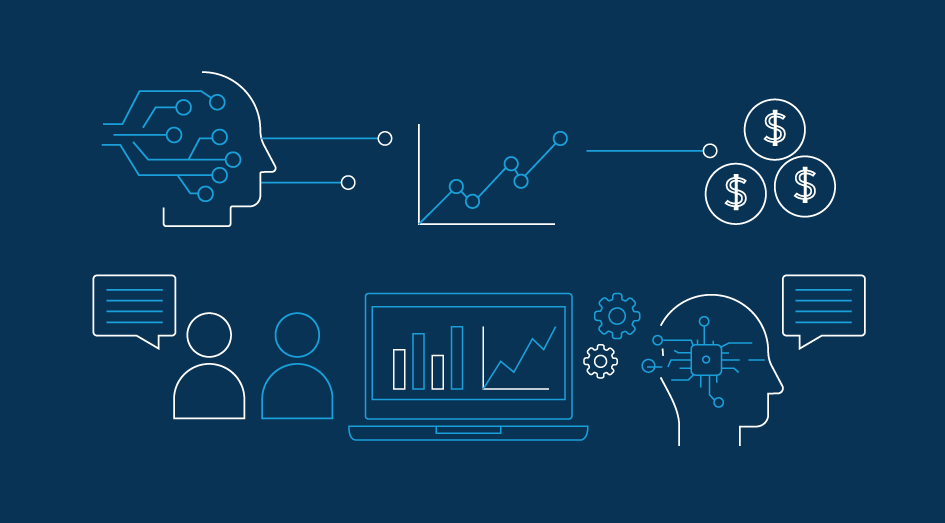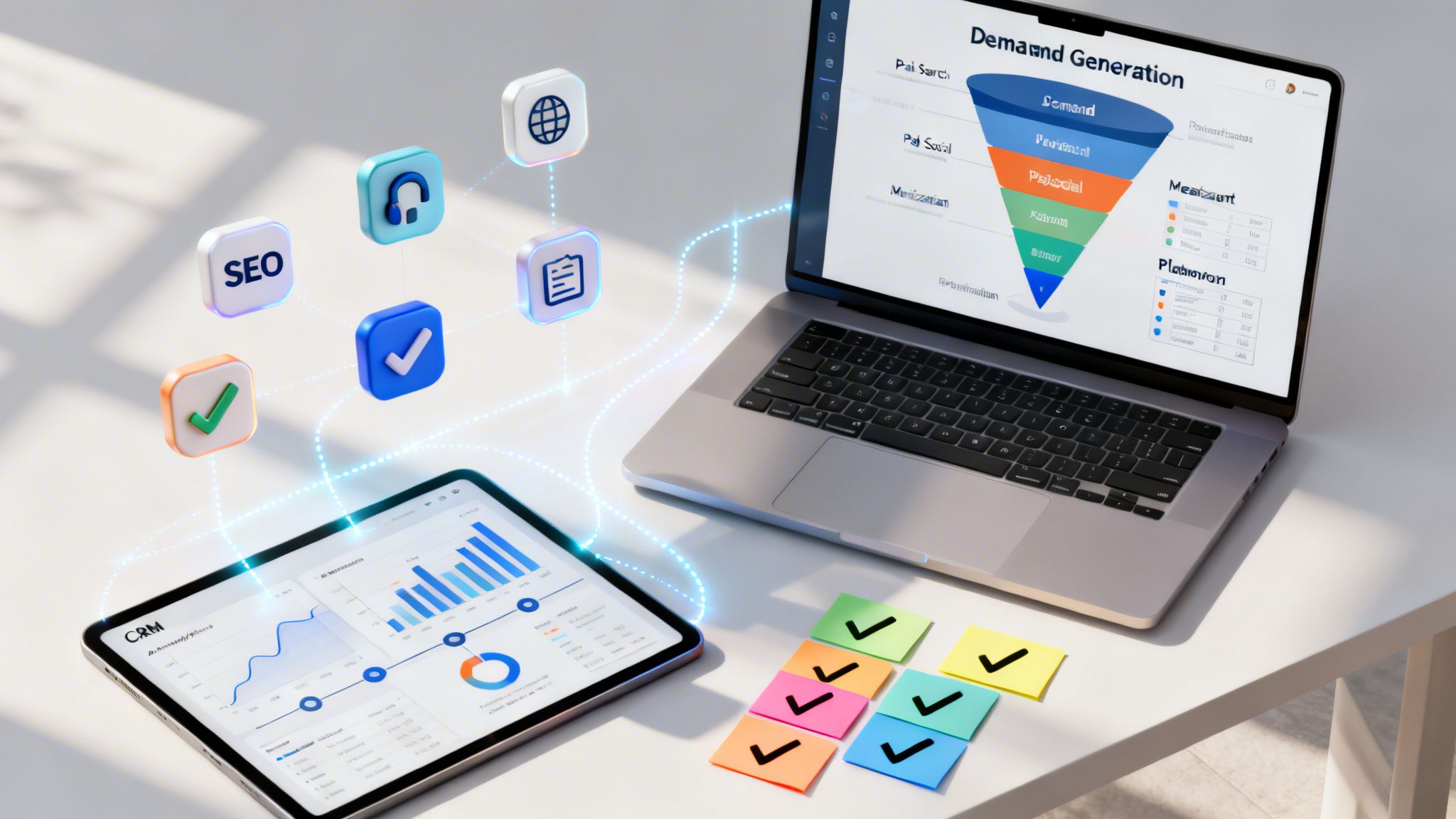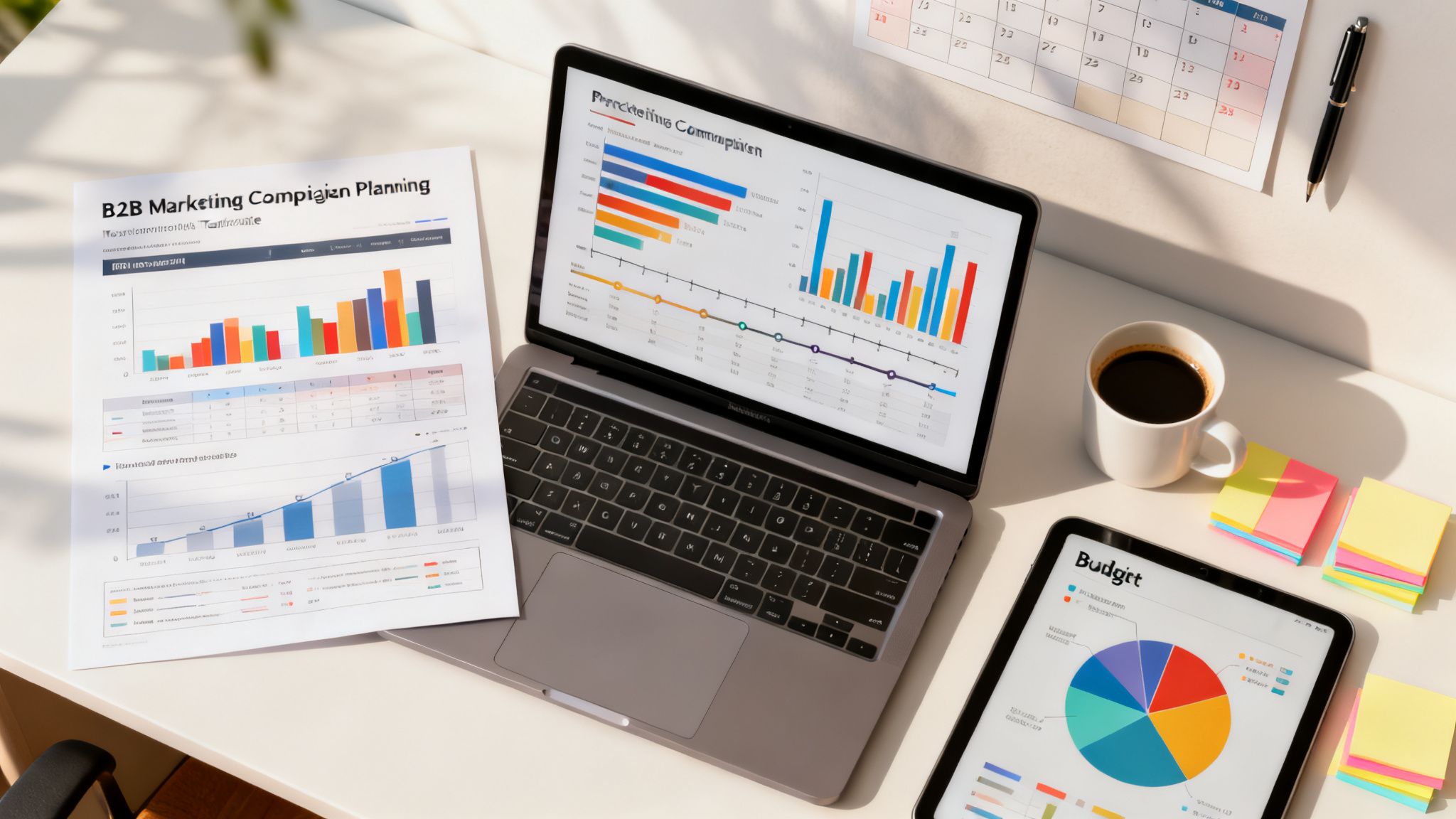CRM can be a great asset in many industries because few businesses do not have staff to manage their sales strategies. But let’s take a closer look at why CRMs work really well for car dealerships specifically. With all of those potential customers, car dealerships need a way to manage their leads and uncover new ones. A CRM can help with that by giving them an organized system for tracking prospects and making connections in the automotive industry.
A CRM also provides information on customers who may be interested in what they’re selling, so it’s easy to pull up contact information when they call or show up at the dealership. In addition, a CRM makes it easier for businesses to create their own marketing strategies because of all this data available about how much and where these potential buyers are looking online.

RELATED: Auto Dealer Customer Relationship Management (CRM)
What Is the Role of CRM in The Automobile Industry?
A CRM provides a way for car dealerships to keep track of their leads and uncover new ones. In addition, it gives them an organized system for tracking prospects and making connections in the automotive industry. With all those potential customers, having access to this information can make any business more efficient by helping find the right customer at just the right time with ease.
Automotive businesses need a way to provide their own marketing strategies because of all this data available about how much and where these potential buyers are looking online (in other words: they know what people want). A CRM makes it easier for businesses to create their own marketing strategies because of all this data available about how much and where these potential buyers are looking online (in other words: they know what people want).
CRM systems for automotive businesses can also help them keep track of their leads and uncover new ones. In addition, it gives them an organized system for tracking prospects and making connections in the automotive industry. With all those potential customers, having access to this information can make any business more efficient by helping find the right customer at just the right time with ease.
Automotive dealerships have a lot going on - so many cars and different models! A CRM helps streamline that process while keeping everything simple and easy to use. It'll show you which inventory is available, how much each car costs, when it was purchased and more. With this information, you can find the perfect car for your needs and get it with ease!
CRM systems are essential to automotive businesses. They help keep everything organized and running smoothly while also helping dealerships make connections in the industry. Plus, they'll save time by showing where cars are on a map or how much each one costs - that way, customers can easily pick out what's right for them without wasting any time.
Automotive CRM system some other benefits of CRM:
It makes business interactions quicker and easier
It helps individuals organize their personal lives better, so they spend less time managing data.
Keeps contact lists up-to-date easier.

RELATED: Automotive CRM Systems
What Are the Benefits of Automobile CRM Software?
Automobile CRM software can hold a lot of data about the individual customers, which means that you don't have to let go of all your information when they buy their car and leave. It also makes it easy for salespeople to track how many cars each person has bought over time to know who is most likely to be buying another, etc. A benefit of this type of system is that customer service will be easier because everyone on the team will always have up-to-date info on what's going in with every client.
The main benefits are listed below:
- Effective management: Being able to manage large volumes of contact lists easily.
- Automate Sales Process: instead of performing the same sales process by your sales staff, have the system automatically guide the staff the process (or automate certain parts)
- Keeps contacts organized: Automatically syncs online and offline databases ensuring accurate and up-to-date records for all teams.
- Easy to use: CRM software is designed with the end-user in mind.
- Cost-effective: The costs of using a CRM system are relatively low and will save your business money as long as it's correctly implemented.
- Helps with marketing: CRM software is designed to automate many repetitive tasks so your staff can spend more time generating leads and managing campaigns.
- Improves customer service: CRM software will provide your team with data to improve the way they handle follow-ups and support customers.
- Capture and track the customer journey and sales opportunities: The CRM will be a centralized place for your staff to keep track of your customer's progress or leads. It offers insights into customers by leveraging history, AI and pattern matching to give full visibility to your sales staff.
- Can track lead sources: CRM software provides a way to identify where most of your leads come from. This is crucial for auto dealers, as they can double down on lead sources bringing the most businesses.
- Provides insights into sales activity: With access to data, you can analyze and review what drives success or failure in each campaign.
- Optimizes staff allocation: CRM software will help you ensure that your business effectively utilizes its resources.
- Provides reports for management: The CRM system can generate detailed and comprehensive reports to keep managers informed of what's happening in their team and across the company.
- Improves customer retention rates: With CRM software, you can manage your customer relationships and tailor them to each client's individual needs (customer loyalty).
- Can implement best practices: CRMs provide a framework for implementing industry best practices so that they're followed consistently across the board.
- Reduces costs: CRM is an effective way for managers to monitor their teams' time spent on an individual task or project.
- Improves customer service: CRM software can automate the process of responding to questions from customers, and it also helps to provide a more personalized experience for them.
- Increases productivity: With CRM, you'll be able to stay on top of tasks and ensure that deadlines are met efficiently and without too much wasted time.
- Reduces human error: CRM software can reduce the risk of human error by ensuring that tasks are completed reliably and on time, with a high level of accuracy.
- It helps identify and manage customers' relationships with individual preferences about products or services they're willing to spend on them.
- Provides analytical insights into how people behave going back-and-forth between website and car showroom!
- Automate buying experience: Imagine if the CRM can automate some of the customer's buying experience? With enterprise-level CRM, you can create automation to automate customer journeys.
RELATED: What Is Power Automate?
How an Automotive CRM System Can Improve How You Do Business
The advantages of CRM for the automotive industry are that there is a better chance of knowing what customers want. This can help improve business processes by providing analytical insights into how people behave and going back-and-forth between your website and car showroom. There really is no reason why you shouldn't be considering a CRM system for your automotive business.
CRMs have a wide range of uses, but it's important to determine whether or not they will work with your company before implementing them. Different businesses use different technologies, which means their needs might vary too much to work effectively for this type of software. For example, if you're running an e-commerce store, then you may not need a CRM.
- It would be better if you knew which of your customers were looking to buy vehicles and when they're making their decision about what type of vehicle to purchase. Still, with a CRM system, this information is much easier to access because all the information will already be there for you.
If you have an automotive company, you must keep up with how people behave to know what they want or expect. You can even use data analytics software like Google Analytics (which we've written on before) to help create user personas so that each customer feels as though someone knows who they are and where they come from
If you have an automotive company, you must keep up with how people behave to know what they want or expect. You can even use data analytics software like Google Analytics (which we've written on before) to help create user personas so that each customer feels as though someone knows who they are
- CRM improves customer retention rates and increases the amount of time a company's customers spend with their products. This is because companies can identify what each client likes or doesn't like about them, tailor future offers accordingly, and provide personal service on an ongoing basis--which creates goodwill that translates into increased loyalty from existing clients as well as prospective buyers who might be interested in trying out new offerings.
- It also provides more opportunities for outreach through surveys or other forms of research; collect feedback from current clients on what they like about the organization and don't like to tailor future offers better accordingly; negotiate to price with prospective buyers who are unwilling (or unable) to commit before fully understanding exactly what
One of the most important ways CRM can help your business is through increased productivity. Automotive service professionals/sales reps are often busy with tasks like paperwork, managing inventory and even completing repairs that require them to spend a lot of time outside their vehicles. They could be doing many things when they go from car to car during the day, meaning they spend less time on a vehicle for each task.
CRM automates tasks and provides reminders to automotive service professionals about what needs doing next so that when they drive up to the next car waiting in line for them, it's already taken care of.
- Automotive Service Professionals.
- Productivity increases with automation.
- Reduced time outside vehicles while completing more work per day.
CRM will also help you reduce costs by streamlining your processes. For example, if an auto shop offers four different types of services (such as oil changes or transmission repairs), using CRM can make finding out which customers need one type over another easier because all customer records are stored together in one location, making their preferred brand easier to find.
Successful businesses know that each customer is a valuable asset to be cultivated and nurtured over time to keep getting new business from them year after year. This is where Customer Relationship Management comes into play when trying to maintain contact with customers while providing up-to-date information about your company's products or services they may need at that moment in time."

RELATED: 10 Best Zapier Alternatives for Workflow Automation
What Is CRM?
CRM stands for customer relationship management, and it’s a strategy used by many companies to provide their customers with the best possible service. CRM systems allow businesses to track important data relating to their contacts to understand exactly what that person wants from them. If your company struggles with an over-stretched team or wants more information about what people want from your product or service, then CRM software could be just the solution!
CRM software can help a business find out more about their customers, what they want from your products and services, and how you can improve your customer service with certain changes to how you are running things. CRMs might include features such as call tracking to see whether calls were answered or not, data mining which could allow for greater insights into what people like about your company’s product or service, email marketing templates that will enable you to quickly create campaigns without needing any specialist knowledge of design skills - plus much more!
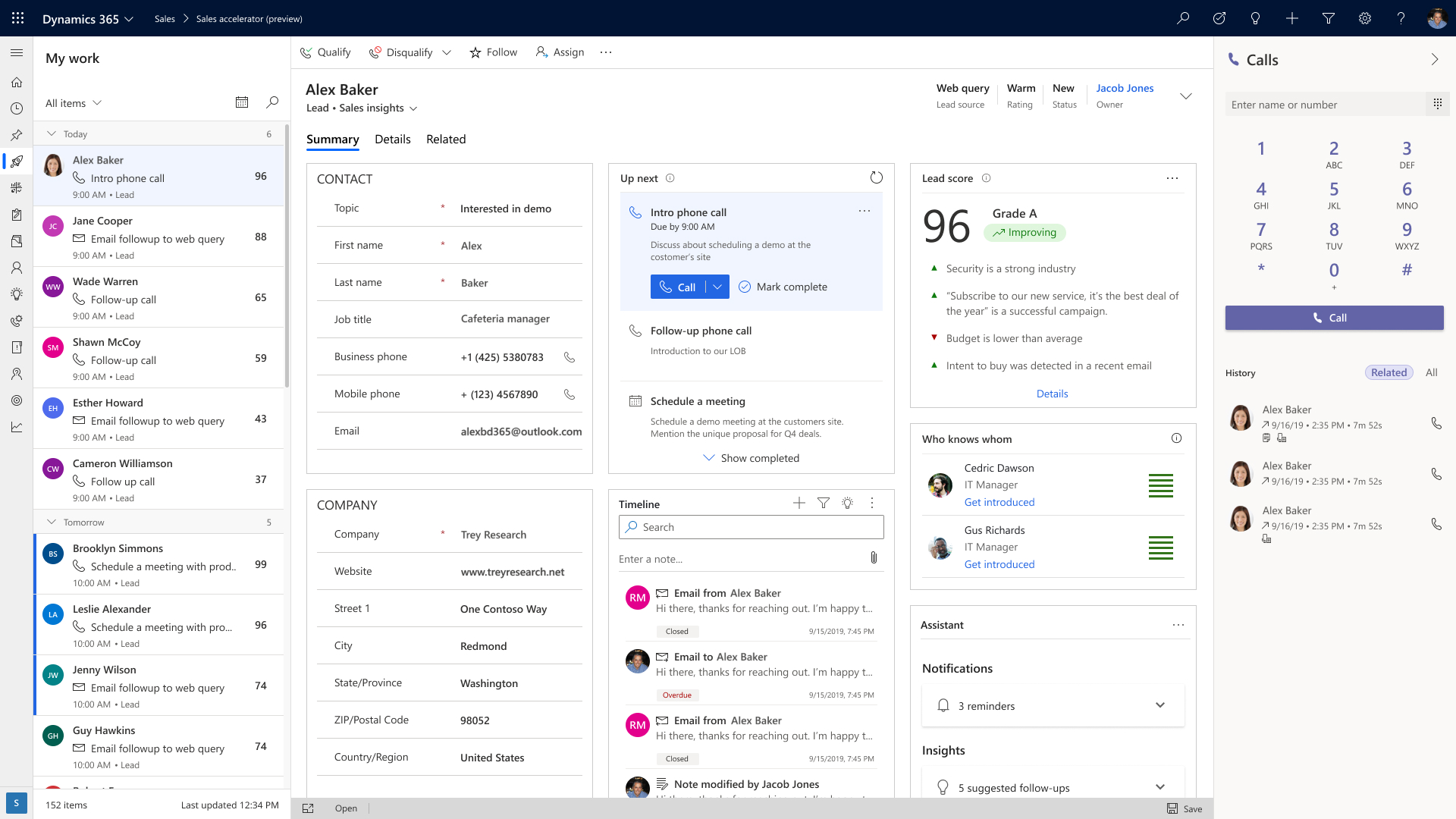
RELATED: What is Salesforce Used For?
What Future Technologies Can Automotives Expect from CRM?
Shortly, automotive companies can expect to get more out of their CRM system. In fact, a company with effective CRM software will better identify and manage customer relationships. For example, they will have access to detailed information about each individual’s preferences when it comes to products and services, as well as what they are most likely willing or unwilling to spend on those particular goods or services.
With this in mind, CRM technology for the automotive industry could help you improve your business processes by providing analytical insights into how people behave, which is going back-and-forth between your website and car showroom! With all these encouraging facts now available thanks to enhanced CRM systems - there really is no reason why you shouldn't be considering a CRM system for your automotive business.
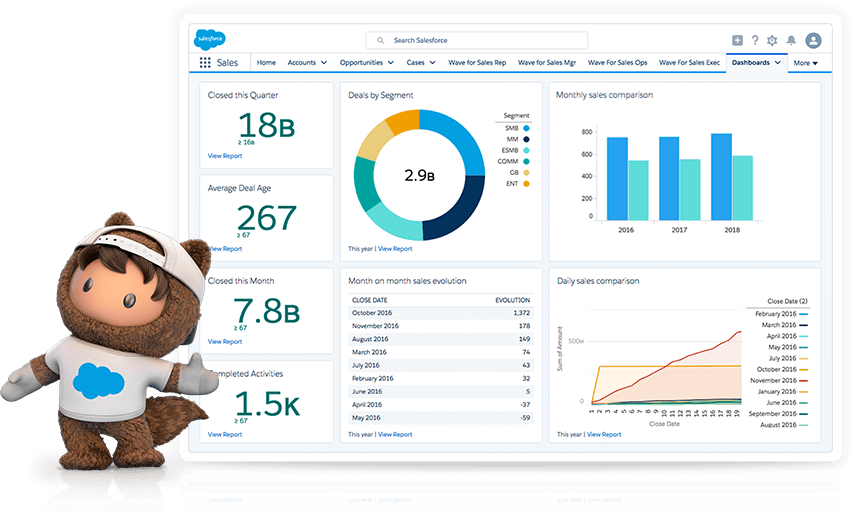
RELATED: 10 CRM Implementation Steps for Company Success
Contact Management In CRM
The automotive industry has always been one of the most complicated business sectors to manage contact information. Trying to figure out who all your contacts are, where they're located, their job titles, and how best to reach them on an ongoing basis can be a daunting task for any company's marketing department or sales team. This is why CRM systems--specifically those that integrate with Salesforce--are so advantageous for these organizations: they provide a centralized database that manages everything from customer data (including purchase histories), personal details about each person within the company, as well as notes about communications and meetings between staff members themselves; thus reducing confusion around important assignments while also streamlining communication channels among different divisions.
It's important to note that CRM is not a "one size fits all" solution: rather, it can be customized according to one company's particular needs and marketing strategies--as well as the specific demands of their customers. It also allows companies to broaden their customer base by providing more opportunities for outreach through surveys or other forms of research; collect feedback from current clients on what they like about the organization and don't like to tailor future offers better accordingly; negotiate to price with prospective buyers who are unwilling (or unable) to commit before fully understanding exactly what they're getting into; and much more.
AI In CRM
For some organizations, artificial intelligence can be an invaluable tool for CRM. In fact, in the future, it may even be able to do much of the work that human marketers are currently responsible for--including automating customer surveys and feedback forms, so they're more efficient; generating personalized email messages based on past purchases or interests; initiating a phone call when certain criteria are met (such as if a prospect has been browsing with no purchase for six hours); and so forth.
For example, Lufthansa Airlines has seen a dramatic improvement in customer satisfaction after implementing an AI-based assistant that handles customer requests.
One major advantage of AI in CRM is that the same limitations and biases do not limit it, as humans are biased towards certain words or phrases.
Another advantage is that AI can scale much more easily than a human workforce: for instance, if an airline has 1000 flight attendants on staff but gets 50 requests per hour from customers asking about their lost luggage, an artificial intelligence program could handle all those inquiries with ease while simultaneously handling any other customer requests.
Whatever your organization's needs are (including simple things like scheduling meetings), there should be some way to implement artificial intelligence into your CRM strategy without sacrificing efficiency.
